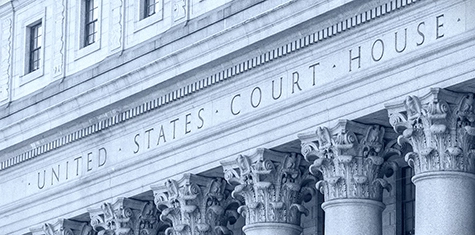Fredrikson & Byron represented the City of New Brighton in achieving a $59.4 million settlement with the United States Army (Army). John Drawz, Rick Snyder, Tim O’Shea, and Lindsey Hemly Remakel were instrumental in achieving this outstanding result.
Fredrikson attorney John Drawz has represented the City since the inception of the contamination dispute with the Army. In 1981, the Minnesota Department of Health (MDH) discovered that New Brighton’s municipal wells were contaminated with harmful chemicals from the U.S. Army’s Twin Cities Army Ammunition Plant (TCAAP). The MDH ordered New Brighton to find an alternative, uncontaminated water supply. The order immediately affected more than 20,000 New Brighton residents, who were notified that it was not safe to drink, cook with or bathe in the water coming from the faucets in their homes.
For years, the Army denied responsibility for the contamination. In 1984, the City sued the Army in federal district court in Minnesota to recover the money it needed for a new water supply. In response, the Army continued to deny responsibility for the contamination.
In 1988, the Army finally admitted that it contaminated the City’s water supply and agreed to settle the lawsuit. The Army entered into a unique, landmark settlement that requires them to “pay all costs” for New Brighton to own and operate a water treatment facility used to remove Army contaminants from the groundwater and supply safe and clean water to New Brighton’s residents.
In 1992, the Army provided New Brighton with long-term advance funding of $17 million for 20 years. In 2011, however, the Army told New Brighton that it would not comply with the settlement agreement as written and had refused to make further payments to New Brighton until the City agreed to convert the litigation settlement into a federal cooperative agreement.
The Army’s proposal would have fundamentally changed the settlement agreement between the parties. On top of the Army’s attempt to change the deal, the City was running out of money to treat the contaminated groundwater. Unless the Army was compelled to honor its settlement obligations, New Brighton’s operating funds were expected to be depleted by mid-2015. At that point, New Brighton’s residents—the victims of the Army’s contamination—would have been forced to pay the $2 to $3 million in annual costs required to treat the contaminated groundwater. New Brighton was not willing to let the Army simply change the terms of the settlement without a fight.
On May 21, 2014, the City of New Brighton filed a motion in federal court in Minnesota asking the court to enforce the 1988 settlement agreement. The Army opposed New Brighton’s motion to enforce and argued that it did not breach the settlement agreement. Judge Ann D. Montgomery immediately ordered the parties to participate in settlement discussions before Magistrate Judge Janie S. Mayeron.
Over the next five months, Judge Mayeron met with the parties in four settlement conferences, in an attempt to resolve the funding dispute. Ultimately, the parties were able to reach a resolution and entered into a Supplemental Litigation Settlement Agreement.
Under the supplemental settlement agreement, the federal government agreed to pay a minimum of $59.4 million to New Brighton to cover the City’s expected costs for the next 30 years for owning and operating its water treatment facility. New Brighton and the United States will negotiate a new funding agreement beyond that period, if conditions require continued treatment.
Dean Lotter, City Manager for New Brighton states, “This supplemental settlement agreement is a big victory for all of New Brighton’s residents because it will provide funding needed to continue to provide a safe and reliable water supply for generations to come.”
For more information please click on the following link: https://www.newbrightonmn.gov/.
Media Contact: Kelly Griffith, Marketing Communications Manager, 612.492.7514, kgriffith@fredlaw.com

